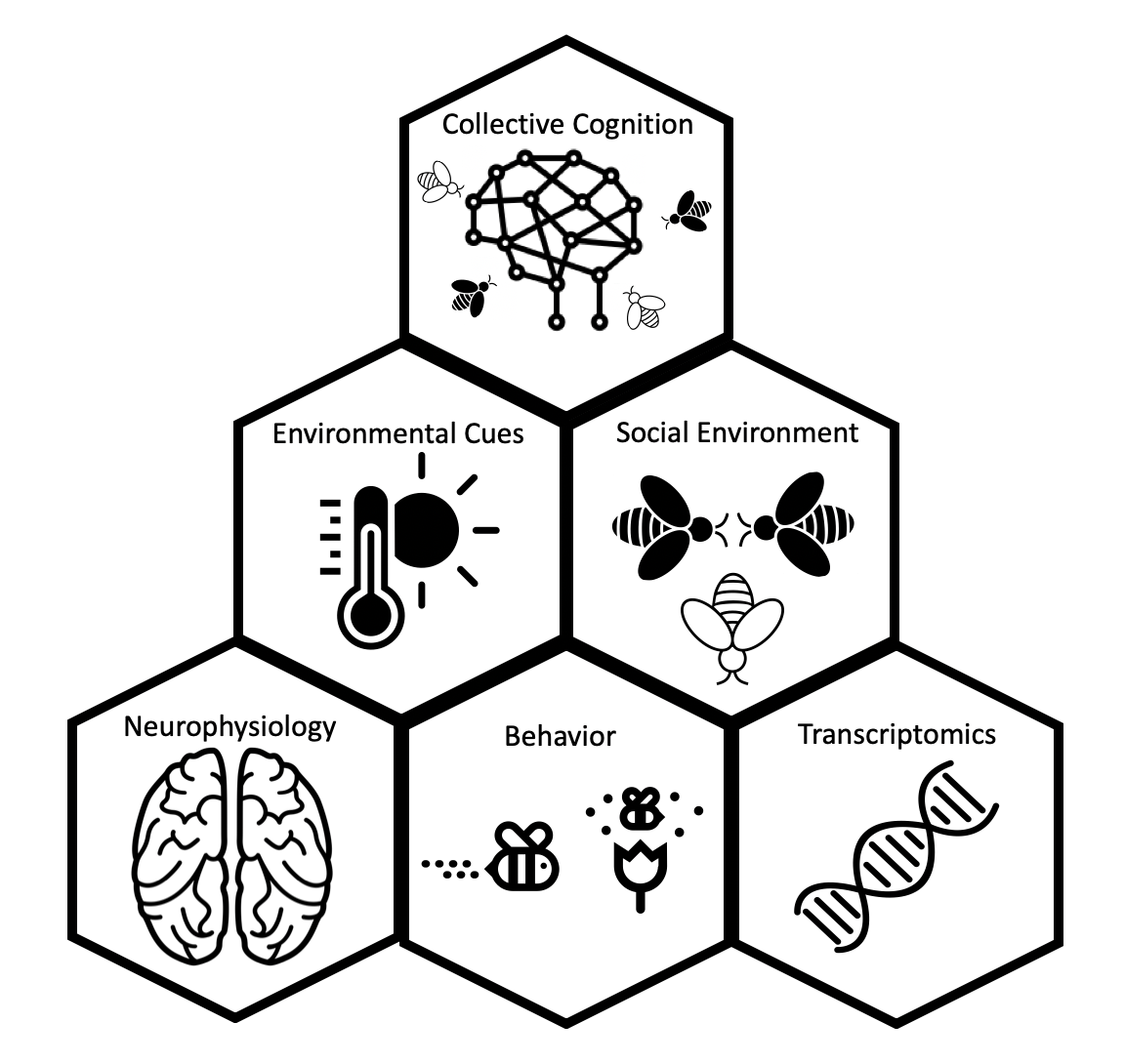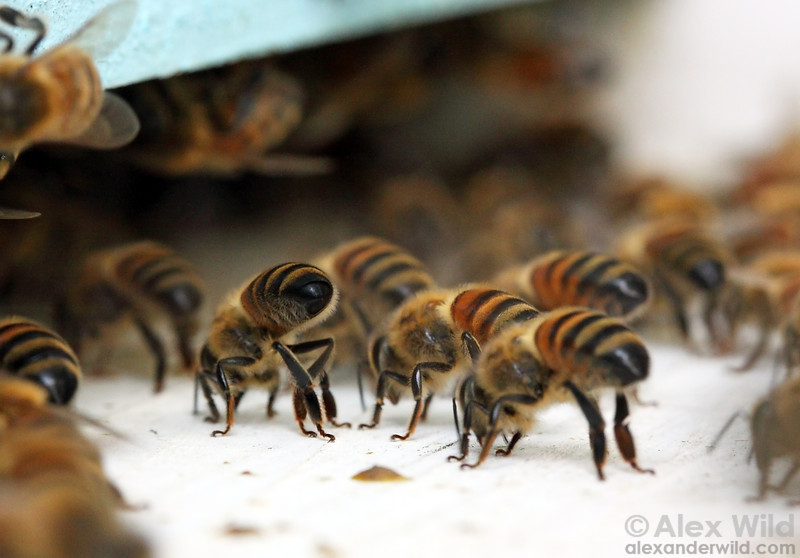Emeriti & Former Faculty
CONTACT
Department of Biological Sciences
Wehr Life Sciences, 109
1428 W. Clybourn St.
Milwaukee, WI 53233
(414) 288-7355
 Dr. Chelsea CookMarquette University
Dr. Chelsea CookMarquette UniversityWehr Life Sciences, 002
MilwaukeeWI53201United States of America(414) 288-4105chelsea.cook@marquette.eduCook Research Team Websitee-PublicationsB.S., 2009, SUNY Cortland, Cortland, NY
Ph.D., 2016, University of Colorado, Boulder
Post-doctoral Fellow, 2016-2020, Arizona State University, Tempe, AZ
BIOL 4502 Experimental Neurobiology
BIOL 1420 Introduction to Environmental Biology
BIOL 8004 Advanced Experimental Design for Graduate Students
The Cook lab takes a holistic approach to understand social behavior. We aim to explain why and how collective behavior occurs at every level; from the collective, to individual behavior, to the physiology and genetics of the individual. Ecological context is critical for understanding social behaviors, so we also explore the environmental conditions that elicit many social behaviors, such as the need for food or a change in temperature.

Figure 1: General research framework in the Cook Lab.
Honey bees are an excellent model system to explore questions about collective behavior. Honey bees perform many collective behaviors, including foraging and thermoregulation. Individual honey bees are incredibly smart and can be trained just like dogs! The mechanisms of behavior are well defined in honey bees, and the genome is well mapped. Finally, honey bee colonies exist in many different environments, which allows for us to understand the ecological importance of collective behaviors, and how information may be communicated as environmental conditions shift. Right now, we are focused on two main research areas:

Figure 2: A photo of honey bees fanning at the entrance of the colony. They perform this behavior to cool their colony down. Photo by Alex Wild.
Honey Bee Thermoregulation: Honey bees strictly regulate the temperature of their colony. When it is cold, honey bees shiver to keep developing brood and the queen warm. When it is hot, honey bees and circulate cool air into the colony by fanning. Fanning is performed by a relatively small task group (3-50 bees) but is critical behavior for the survival of the colony, as overheated larvae can die. When bees are in larger groups, they are more likely to fan, and fan at lower temperatures, compared to when bees are in small groups or in isolation. A major question that we aim to answer is what information are bees using and communicating to know when to fan?
Social Isolation: From egg to death, honey bees constantly interact with other bees. Anecdotal evidence shows that when bees are isolated for too long, even with all the food and water they need, they will die. Research in our lab will focus on exploring the physiology and behavioral implications of social isolation.
The Cook lab commits to developing an inclusive and supportive space to do the best science we can.
Animal Behavior Society
International Union for the Study of Social Insects
Entomological Society of America
Lei, H., Haney, S., Jernigan, C., Guo, X.J., Cook, C.N., Bazhenov, M., and B.H. Smith. 2022. Novelty detection in early olfactory processing of the honey bee, Apis mellifera. PLOS One. 17 (3), e0265009. https://doi.org/10.1371/journal.pone.0265009
Cook, C. N., Freeman, A. R., Liao, J. C., & Mangiamele, L. A. (2021). The Philosophy of Outliers: Reintegrating Rare Events Into Biological Science. Integrative and comparative biology.
Sezen, E*., E. Dereszkiewicz*, A. Hozan*, M. Bennett, C. Ozturk, B.H. Smith, C.N. Cook. 2020. Heritable cognitive phenotypes influence appetitive learning but not extinction in honey bees. Annals of the Entomological Society of America. https://doi.org/10.1093/aesa/saab023
Cook. C.N., Lawson, S. & Rehan, S. 2019. Biogenic amines shift during the solitary-to- subsocial transition in the small carpenter bee, Ceratina calcarata. Apidologie. 50: 90-99. https://doi.org/10.1007/s13592-018-0624-9
Kaspar, R., Cook, C.N., Breed, M.D. 2018. Experienced individuals influence the thermoregulatory fanning behaviour in honey bee colonies. Animal Behaviour. 142:69-76. https://doi.org/10.1016/j.anbehav.2018.06.004
Current Funding
National Science Foundation Integrative Organismal Systems Grant (2023-2026)
Previous Funding
USDA Phase II Small Business Innovation Research (SBIR) Grant (2018-2020)
USDA Phase I Small Business Innovation Research (SBIR) Grant (2017)
NIH Ruth L. Kirschstein NRSA Postdoctoral Fellowship (2018-2019)
Casey Lambert (Ph.D. Student)
Rachael Halby (Ph.D. student)
Justine Nguyen (Ph.D. student)
Dr. Cook is not currently accepting new Ph.D. students into her lab